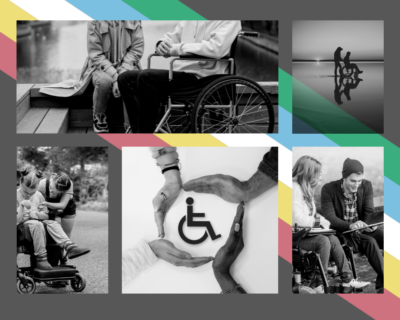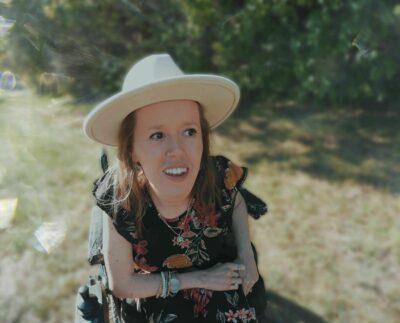Looking after your mental health: the part music can play
Living with your condition is going to be a big learning journey, learning the new language, a new way of doing things. Asking for help early will just give you more tools in your kit bag to be able to not only survive but hopefully thrive in the journey to come.
Being diagnosed with a neuromuscular condition can be overwhelming while you adapt to this whole new world that you had only glimpsed before. Medical jargon, diagnostics, prognosis, equipment, the loss of sense of self, dealing with how people now interact with you and the media’s negative portrayal of people with a disability, it can make you want to just shut down.
If you are lucky you have a brilliant doctor who is just as concerned with your mental health as much as your physical wellbeing, but it is not always the case. When I was first diagnosed, I went through a significant period of severe depression as I grieved the loss. Finally, my partner made me see that looking after my mental health was just as important as my physical health and convinced me to see a grief counsellor.
So, my first piece of advice would be to ask for help, your GP will be able to refer you for free sessions with a psychologist under a mental health plan. Living with your condition is going to be a big learning journey, learning the new language, a new way of doing things. Asking for help early will just give you more tools in your kit bag to be able to not only survive but hopefully thrive in the journey to come.
Next thing, surround yourself with things that improve your mood and hopefully take yourself out of monitoring your constant inner dialogue. Music can be fantastic for this. A curated playlist of your favourite songs can improve your mood even on the darkest day. Choose songs to inspire self-acceptance or ones that remind you that your record of surviving bad days so far has been 100%.
Here is the playlist I listen to: Sarah’s feel-good playlist. Maybe not all of these will work for you but the songs that will work for you are out there.
Where possible get out and see live music. Doesn’t have to be an expensive concert your local cover band will do if you enjoy it. The benefits of attending live music as a stress reliever and its impact on people’s sense of wellbeing are well documented. Get out take a break from the real world for a short while and have a great time. If you are musical then consider re-joining that band, that choir, that orchestra.
Have advice, 'how to' guides or a story you want to share? We want to hear from you!
You can submit your story or guide via our form. Provided your content meets our content requirements, your post will be published by a Loop moderator to the Living Life section.
Share your story



Join the conversation